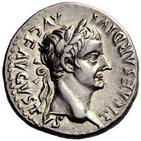

The first emperor we know persecuted Christians was Nero in 64AD, as recorded by Tacitus. However it was not until the third century that Decius and later Diocletian made persecution of Christians enforceable by imperial edict.
 This term literally means Witness but has commonly become associated with those who have died for their beliefs. In this week of remembrance it seems appropriate to have this word of the week as we remember those who have gave their lives to uphold the values that they held sacred to them. In the case of WW1 and WW2 it was to protect and uphold our nations’ values in the face of expansionism and fascism.  The term is probably associated most with those early Christians who died at the hands of the Romans. This is currently being studied by our year 9 students; what has been interesting to observe is their reaction when they find out that the persecution of Christians was not empire wide or systematic for much of the first three centuries; rather it was sporadic and due to local disputes - and not very many were "thrown to the Lions"! Often Christians seem to have been scapegoated for problems faced by small communities. This was certainly the case when Pliny the Younger investigated accusations against Christians in Bithynia; he found that Christians did not seem like political dissidents and that their crimes were being exaggerated. This is perhaps not surprising given that the gospels contain commands from Jesus such as “give unto Caesar what belongs to Caesar”. However the early Christians did often cause unrest amongst the Roman elite, mainly due to the fact that they refused to worship the emperor; Politics and Religion were irreconcilably intertwined in the Roman Empire and to refuse to worship the emperor was tantamount to treason. The Romans were in fact very tolerant of other religions and wanted to unite them with their own beliefs, as long as they agreed to pay homage to the Emperor. The one exception to this was the Jews, but they had great antiquity that the Romans admired; however the Christians did not have this quality to let them off the hook. The first emperor we know persecuted Christians was Nero in 64AD, as recorded by Tacitus. However it was not until the third century that Decius and later Diocletian made persecution of Christians enforceable by imperial edict. The effect of these persecutions was not what was desired; rather the Romans were often impressed by the dignity of those suffering and the way that they “died well”. As Tertullian wrote, a Christian convert who himself came to faith having been impressed by martyrs’ bravery, “The blood of the martyrs is the seed of the church”. Then, as now, the death of people standing up for what they believed in was inspirational to those who remained behind. Likewise it seems to pertinent to think that on Tuesday this week people across our land will, in a similar way, stop to remember the witness of those who died for our nation.
|
Archives
June 2016
Categories
All
|
